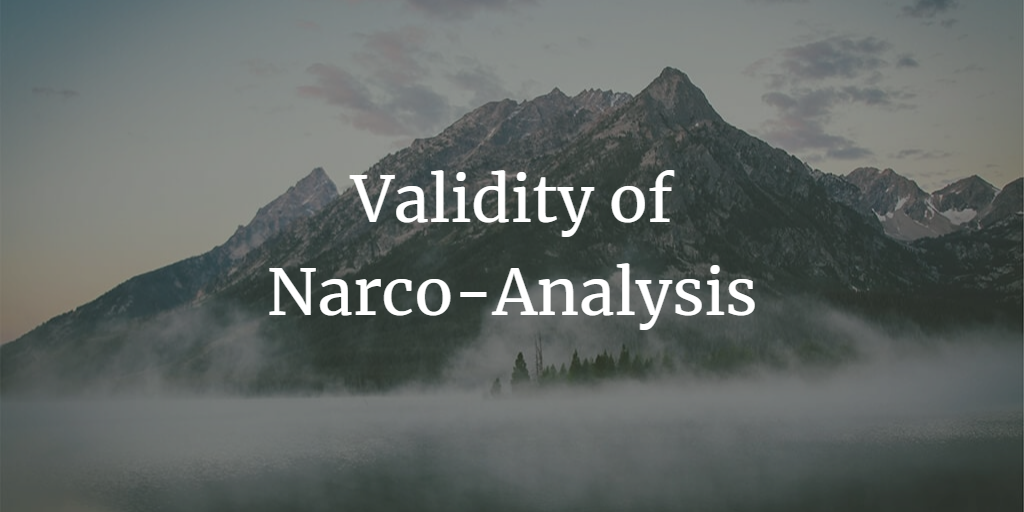Validity of Narco-Analysis – Crime Detection Technique

Table of Contents
Introduction to Narco-Analysis
How Narco-Analysis Works
Application of Narco-Analysis in India
Legal and Ethical Challenges
Indian Courts' Stance on Narco-Analysis
International Perspective
Conclusion
1. Introduction to Narco-Analysis
Narco-analysis, also known as the "truth serum" test, is a crime investigation technique that involves administering drugs to a suspect to obtain information. It has gained significant attention in India as a method to extract confessions and uncover hidden evidence in criminal cases.
2. How Narco-Analysis Works
During a narco-analysis test, the subject is administered a drug, typically sodium pentothal, which induces a state of semi-consciousness. In this state, the person's inhibitions are lowered, making them more likely to divulge information they might otherwise conceal. Investigators use this opportunity to question the subject about the crime under investigation.
3. Application of Narco-Analysis in India
Narco-analysis has been used in several high-profile cases in India, such as the Nithari serial killings, the Mumbai train bombings, and the Godhra train burning. However, its use remains controversial due to concerns about its validity, effectiveness, and legality.
4. Legal and Ethical Challenges
The use of narco-analysis in India has faced criticism on several grounds, including:
Infringement of the right to privacy
Violation of the right against self-incrimination
Ethical concerns about subjecting individuals to invasive procedures without their consent
5. Indian Courts' Stance on Narco-Analysis
In 2010, the Supreme Court of India, in the case of Selvi vs. State of Karnataka, declared that narco-analysis, polygraph tests, and brain mapping tests are unconstitutional when conducted without the subject's consent. The court ruled that these tests violate the fundamental rights to privacy and protection against self-incrimination.
6. International Perspective
Many countries, such as the United States and the United Kingdom, have strict regulations surrounding the use of narco-analysis and similar techniques. These countries often prohibit their use in criminal investigations or limit their application to specific circumstances, balancing the need for effective crime detection with the protection of individual rights.
7. Conclusion
The validity and legality of narco-analysis in India remain subjects of debate. While the technique may offer potential benefits in crime detection, its use must be balanced with the protection of fundamental rights and ethical considerations. As the legal landscape evolves, it is crucial to continue evaluating the role of narco-analysis in India's criminal justice system and ensure that its application adheres to the principles of justice and fairness.


